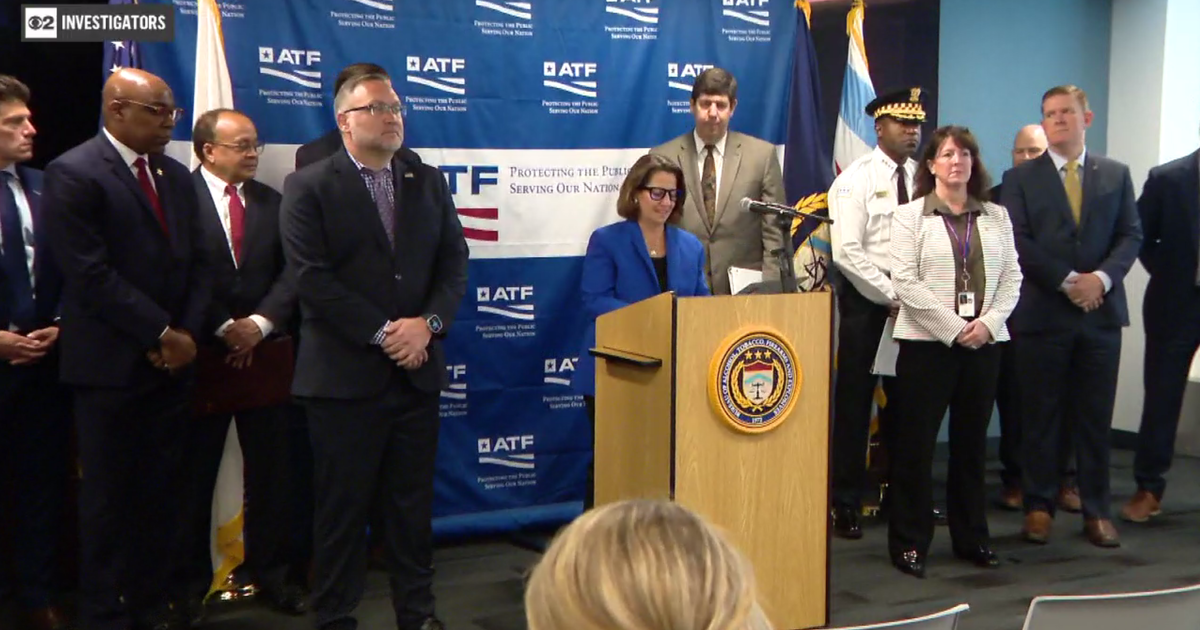New Illinois Law Raises Earned-Income Tax Credit
CHICAGO (AP) — Legislation aimed at helping poor Illinois families keep more of what they earn was signed into law Tuesday, a month after Gov. Pat Quinn signed companion legislation granting tax breaks and incentives aimed at keeping two big employers in the state.
The new law, which is effective for the 2012 tax year, expands the state's earned-income tax credit. It's now 5 percent of the federal credit and will climb to 7.5 percent next year and 10 percent the year after.
State officials said it would eventually translate to an average of about $100 a year per family. Currently about 900,000 families meet income guidelines in Illinois, but some advocates estimated 1 million will qualify this year.
"We can't forget everyday people who are the heart and soul of Illinois," Quinn said at a bill signing ceremony in Chicago. He said the money would stimulate local economies and reward working families.
The new law also would increase the personal exemption by $50 to $2,050. That's the amount of money exempt from state income taxes for each person. The exemption also would increase each year by the rate of inflation.
Quinn demanded tax relief for individuals in exchange for approving the tax breaks for Sears Holdings Corp. and CME Group Inc., which operates the Chicago Mercantile Exchange. It gave him political cover for giving big employers tax breaks in a year when income taxes were raised; he signed legislation last January that raised the personal tax rate to 5 percent from 3 percent.
He approved the law granting hundreds of millions of dollars in incentives and tax breaks for Sears and CEM last month. It renewed a credit Sears has been receiving for years and guarantees the Hoffman Estates-based company a $15 million break on its taxes over the next 10 years and extends a property-tax cut. Sears officials had said the company would stay in Illinois if Quinn approved the bill.
For CME, lawmakers agreed to reconfigure tax calculations for the profitable company by changing how much of its business is subject to state income taxes. CME officials said the company would remain Illinois where it's been for more than a century.
Officials estimated the package for the companies and individuals— which legislators split into two parts last month to increase the chances of passing them — is likely to cost Illinois about $330 million in revenues during the second year, when the tax measures are fully in effect.
Advocates for poor families applauded the Tuesday's law.
Illinois' old 5 percent earned-income tax credit rate was among the lowest in the country. On the other end of the spectrum, Vermont's rate is 32 percent of the federal earned-income tax credit, according to a state website.
"It's good news for working families. This is really a victory for parents," said Kelley Talbot, a policy director at Voices for Illinois Children. "Parents will be able to stretch their income a little bit further."
Rhonda Jones, 43, of Chicago, who has five children, said even $100 can make a difference. She makes about $30,000 a year working in a school counselor's office.
She said in the past the extra money has helped her fill up the deep-freezer or pay for one of her college-aged sons to make a trip home to see family.
"The earned-income tax credit has helped me out of a lot of jams," she said.
(TM and © Copyright 2012 The Associated Press. All Rights Reserved. This material may not be published, broadcast, rewritten or redistributed.)



